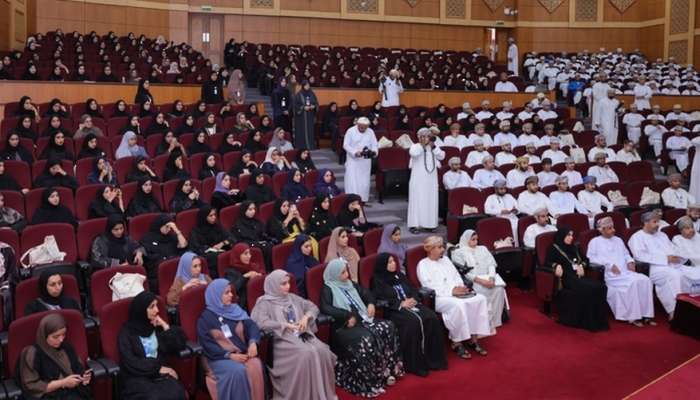

Muscat: The Official Gazette has published in its issue today, Sunday, the full text of the School Education Law promulgated by Royal Decree No. 31/2023.
The Ministry of Education said that Arabic is the official language of education in all schools, and the Ministry may approve the teaching of some subjects in other languages.
The School Education law includes 97 articles, divided into ten chapters, covering the following topics: Educational stages, special educational programs, educational environment, students, members of the teaching staff, curriculum, penalties, and others.
It confirmed that the Arabic language is the official language of education in all schools, and the Ministry may approve the teaching of some subjects in other languages.
In addition, the law also confirmed that the actual days of study should not be less than 180 days, and the decision authorised the establishment of schools or specialised centers in the sciences, arts, or any other field.
It also stressed that education in public schools is free, and that scientific research, innovation and leadership among students and members of the educational staff are among the priorities of the Ministry, and the necessary facilities are provided for this.
Educational Stages
The law defines educational stages as early education, basic education, and post-basic education.
Post-basic education includes preparing students for lifelong learning and providing them with the necessary knowledge, skills, and competencies that qualify them to pursue specialised or university education or to join the labour market.
The law also permitted the transfer of a student who excels academically from the grade he is enrolled in to a higher grade, or more during one stage.
As for special educational programmes, they include special education, literacy and adult education.
The law permitted schools to open an independent bank account in which the financial revenues obtained from various sources are deposited. Donations may not be accepted except with the written approval of the ministry. The law also authorised the Ministry to provide scholarships to students in private schools that do not exceed the average annual general cost of the student’s academic stage in public schools, provided that the regulation defines the procedures and controls.
Students
The School Education Law permitted the admission of non-Omanis in public schools, and Omani students may also be accepted in the schools of children of foreign communities.
It also permitted the student's right to participate in the formation of student councils on issues and topics of interest to them through various means.
The law also permitted home study or distance learning for students whose circumstances necessitate not attending school regularly.
Furthermore, the law specified five prohibitions for students, including not using social media or other means for extortion, defamation, spreading rumours, or insulting society or the students and employees of the school.
Teaching Staff Members
The law obligates practitioners of the teaching profession to obtain a licence for it, in accordance with what is determined by the regulations. The law affirms that members of the educational body have a protected professional position that cannot be undermined by slander or defamation.
The law also specified that the school should have a board of directors to handle all its administrative and financial affairs, and that the school principal would be the head of this board.
Penalties
The law specifies a punishment for the guardian in the event that he does not commit to registering his child or following up on his child's attendance at school. If he does not, within (14) days from the date of completion of these procedures, register the child, or continues not to follow up on his attendance at school without an acceptable excuse, he shall be punished with imprisonment for a period of no less than a month and not exceeding (3) months, and a fine of no less than (500) OMR and not exceeding (1,000) OMR, or one of these two punishments.
No penalties will be applied if the school administration fails to notify the guardian of the student's lack of attendance according to the procedures indicated.
The law also specified practices that participants in the process of preparing, implementing, and correcting tests and examinations are prohibited from doing in accordance with Article 83.
In case of any violations, they shall be punished by imprisonment for a period of no less than one month and no more than (3) months, and a fine of no less than (300) OMR and not more than (500) OMR, or one of these two penalties
The law stipulates that applicants for tests or exams must fully comply with the controls of their management as set out in the regulations. In the event that they violate this, they shall be punished with imprisonment for a period of no less than (10) days and not exceeding (30) days, and a fine of no less than (100) OMR, and not exceeding (500) OMR, or one of these two penalties.
The penalty also includes whoever disturbs public order inside the school, or disrupts the school’s educational activities.
The Minister of Education, in accordance with the decree promulgating the law, is required to issue the executive regulations for the School Education Law, and the regulations and decisions necessary to implement its provisions.